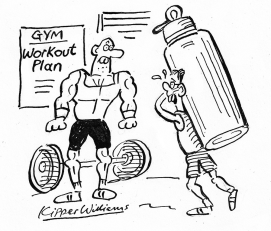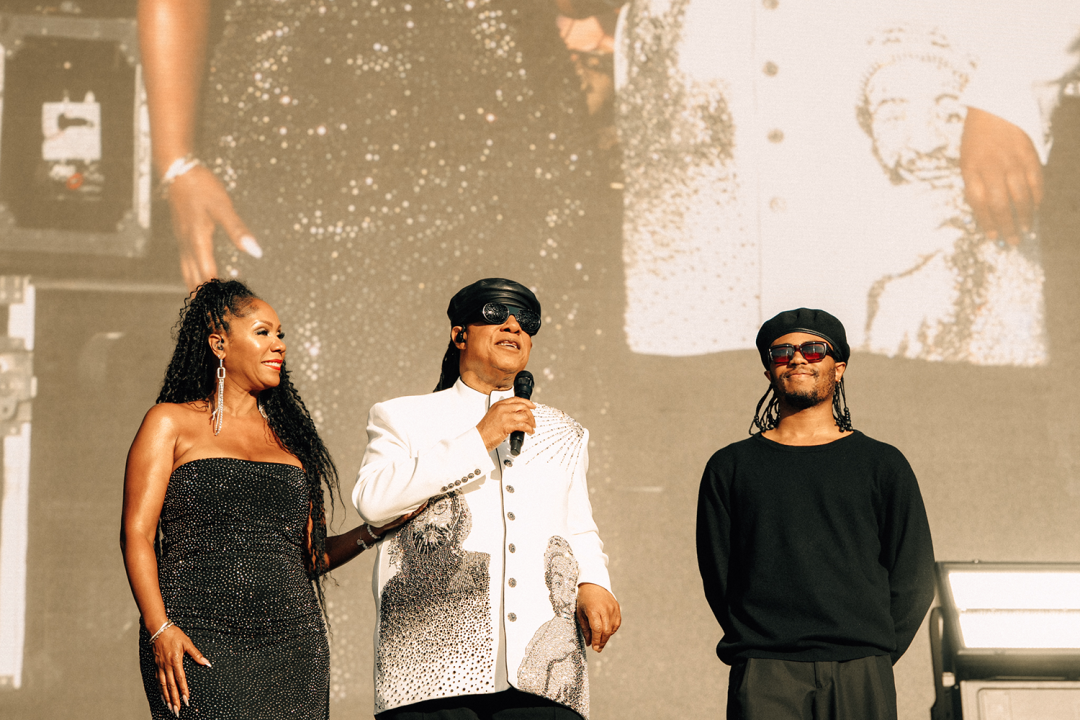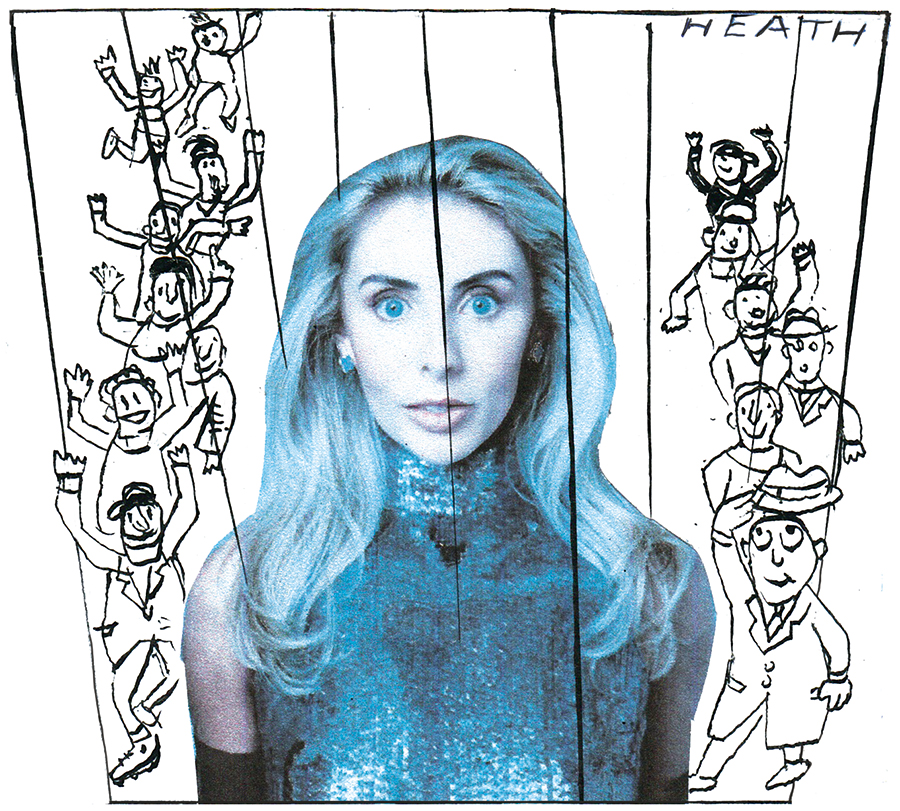
The highs of Stevie Wonder’s Hyde Park show were magnificently high. The vast band were fully clicked into that syncopated, swampy funk, horns stabbing through the synths, the backing singers adding gospel fervour. And Wonder – now 75 – sang like it was still the 1970s, his voice raspy one minute, angelic the next. Anyone who heard that phenomenal group play ‘Living for the City’ or ‘Superstition’ and didn’t feel ‘ants in my pants and I need to dance’, as James Brown once put it, should resign from life: they do not deserve such joy.
That said, there were oddities. We were blessed with visits from four of Wonder’s nine children, two of whom were given whole songs to sing while the great man had a breather, as were three of the backing singers. Then there was the opening of the show: ten minutes of Wonder addressing the crowd, who maintained a respectful silence while being told over and over – in different formulations and intermittent lapses into faux cockney – that there was too much anger in the world and we all needed to love each other. He couldn’t decided whether he wanted to be Dick Van Dyke or Martin Luther King.
Needless to say, scientists have as yet ascertained no link between pop stars telling concert-goers that we need to love each other more and increased social cohesion. Actually, the latest studies suggest that the longer such lecturing goes on, the more irritation among those being lectured rises. It’s a phenomenon some call the ‘Imagine Syndrome’, which Wonder exemplified by then playing ‘Imagine’, so we could hear its timeless message of triteness through fresh ears.
But within four songs we were at ‘Master Blaster’, then ‘Higher Ground’ and one was willing to forgive everything – all the gloopy ballads, all the showbizzery, even the white jacket with diamanté portraits of John Lennon and Marvin Gaye. Even singing ‘Happy Birthday’ to his youngest daughter was fabulous because it was Stevie Wonder’s ‘Happy Birthday’, not the song that launched a thousand cakes.
There comes a point where you have to see these people before it’s too late. I’m glad I got to see Stevie Wonder while he was still recognisably good enough to be Stevie Wonder because some legends are at the point where it’s their catalogues rather than their voices that bring 65,000 people out.
The day after Wonder, Hyde Park was meant to host the final show by Jeff Lynne’s ELO, but a ‘systemic infection’ had forced him to cancel. I had seen Lynne a few times, and it was always tremendous fun. The week before, I had been at Villa Park, watching the final performance by Black Sabbath and Ozzy Osbourne, which was extraordinary and moving.
I’m glad I got to see Stevie Wonder while he was still recognisably good enough to be Stevie Wonder
What struck me was how under-celebrated the Birmingham music scene of the late 1960s has been. You can’t move for the mythologising of Manchester and Liverpool pop, and though the city bigs up its links to metal, you rarely hear about the products of Brumbeat. But this was the generation that gave us Steve Winwood (and the Spencer Davis Group and Traffic), Lynne, Ozzy and Sabbath, Roy Wood (who was the pre-eminent genius of the lot at the time), the Moody Blues and half of Led Zeppelin. That’s one of rock’s greatest cities, not the butt of a joke.

Finally to Heavenly, the most overqualified group in pop history (seriously, Google them). They are the unlikely heroes to a small but dedicated scene, known as indie-pop or twee-pop, in which emotional directness trumps technical virtuosity: Kurt Cobain loved them for being punk rock and entirely without machismo. Theirs is a political stance based on not compromising principles (the show was part of a DIY weekender they had organised themselves) and being avowedly feminist (‘Hearts and Crosses’ sets a story of rape against queasy fairground organ).
That makes it sound strident and hectoring, but Heavenly are not that. The songs would not have troubled Steely Dan’s session guys, but they are full of joy, vim, life. Best of all, there were plenty of twentysomethings in the crowd, filming and dancing and singing along. No need to be Stevie Wonder to be an inspiration to the generations to come; simply capture something truthful.





